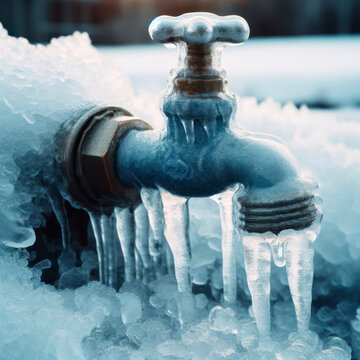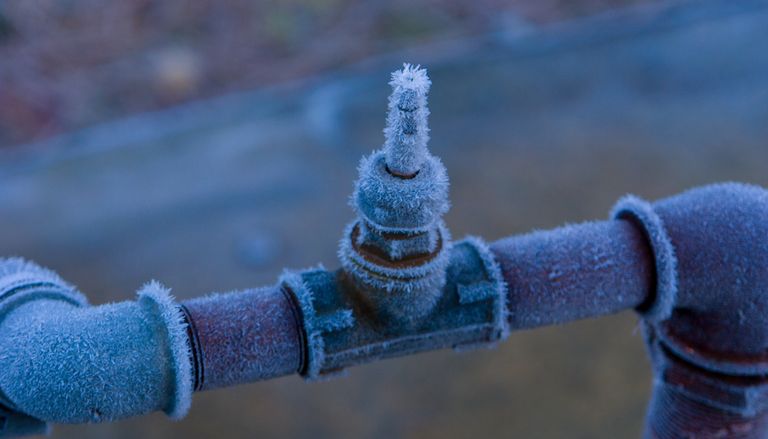Protecting Against Frozen Plumbing: Best Tips for Winter
Protecting Against Frozen Plumbing: Best Tips for Winter
Blog Article
This great article which follows on the subject of Winter Plumbing Precautions: Preventing Frozen Pipes is seriously engaging. Check it out for your own benefit and decide what you think about it.

Cold weather can ruin your plumbing, specifically by freezing pipelines. Here's exactly how to avoid it from taking place and what to do if it does.
Introduction
As temperature levels decline, the danger of icy pipes boosts, potentially bring about pricey fixings and water damages. Comprehending exactly how to prevent icy pipelines is important for property owners in cold environments.
Understanding Icy Pipes
What creates pipes to ice up?
Pipes ice up when subjected to temperature levels below 32 ° F (0 ° C) for expanded periods. As water inside the pipelines ices up, it expands, taxing the pipeline walls and possibly creating them to break.
Threats and problems
Icy pipelines can lead to supply of water disruptions, residential or commercial property damage, and costly repair services. Ruptured pipelines can flood homes and trigger comprehensive structural damage.
Indicators of Frozen Pipeline
Recognizing frozen pipes early can stop them from rupturing.
Exactly how to recognize frozen pipes
Look for decreased water flow from faucets, uncommon smells or sounds from pipes, and visible frost on exposed pipelines.
Avoidance Tips
Protecting susceptible pipes
Cover pipes in insulation sleeves or use heat tape to protect them from freezing temperature levels. Concentrate on pipes in unheated or outside locations of the home.
Heating strategies
Keep indoor spaces properly heated up, especially areas with pipes. Open up cabinet doors to enable cozy air to circulate around pipes under sinks.
Securing Exterior Pipes
Garden hose pipes and outside taps
Separate and drain yard pipes before wintertime. Mount frost-proof spigots or cover exterior taps with shielded caps.
What to Do If Your Pipelines Freeze
Immediate activities to take
If you presume icy pipelines, maintain faucets open to alleviate pressure as the ice thaws. Use a hairdryer or towels taken in hot water to thaw pipelines slowly.
Long-Term Solutions
Structural adjustments
Take into consideration rerouting pipelines far from outside wall surfaces or unheated locations. Include additional insulation to attics, basements, and crawl spaces.
Updating insulation
Purchase high-quality insulation for pipelines, attics, and walls. Correct insulation assists maintain regular temperature levels and decreases the threat of frozen pipelines.
Final thought
Avoiding frozen pipes calls for proactive actions and quick feedbacks. By comprehending the reasons, indications, and safety nets, homeowners can safeguard their plumbing throughout winter.
Helpful Tips to Prevent Frozen Pipes this Winter
UNDERSTANDING THE BASICS: WHY PIPES FREEZE AND WHY IT’S A PROBLEM
Water freezing inside pipes is common during the winter months, but understanding why pipes freeze, and the potential problems it can cause is crucial in preventing such incidents. This section will delve into the basics of why pipes freeze and the associated problems that may arise.
THE SCIENCE BEHIND FROZEN PIPES
When water reaches freezing temperatures, it undergoes a physical transformation and solidifies into ice. This expansion of water as it freezes is the primary reason pipes can burst. As the water inside the pipe freezes, it expands, creating immense pressure on the walls. If the pressure becomes too great, the pipe can crack or rupture, leading to leaks and water damage.
FACTORS THAT CONTRIBUTE TO PIPE FREEZING
Low Temperatures: Extremely cold weather, especially below freezing, increases the risk of pipes freezing. Uninsulated or Poorly Insulated Pipes: Pipes located in unheated areas, such as basements, crawl spaces, or attics, are more prone to freezing. Insufficient insulation or lack of insulation altogether exacerbates the problem. Exterior Wall Exposure: Pipes running along exterior walls are susceptible to freezing as they encounter colder temperatures outside. Lack of Heating or Temperature Regulation: Inadequate heating or inconsistent temperature control in your home can contribute to frozen pipes. PROBLEMS CAUSED BY FROZEN PIPES
- Pipe Bursting: As mentioned earlier, the expansion of water as it freezes can cause pipes to burst, resulting in significant water damage.
- Water Damage: When pipes burst, it can lead to flooding and water damage to your property, including walls, ceilings, flooring, and personal belongings.
- Structural Damage: Prolonged exposure to water from burst pipes can compromise the structural integrity of your home, leading to costly repairs.
- Mold and Mildew Growth: Excess moisture from water damage can create a favorable environment for mold and mildew growth, posing health risks to occupants.
- Disrupted Water Supply: Frozen pipes can also result in a complete or partial loss of water supply until the issue is resolved.
WHY CERTAIN PIPES ARE MORE PRONE TO FREEZING
- Location: Pipes located in unheated or poorly insulated areas, such as basements, crawl spaces, attics, or exterior walls, are at higher risk of freezing.
- Exterior Pipes: Outdoor pipes, such as those used for irrigation or exposed plumbing, are particularly vulnerable to freezing as they are directly exposed to the elements.
- Supply Lines: Pipes that carry water from the main water supply into your home, including the main water line, are critical to protect as freezing in these lines can affect your entire plumbing system.
- Underground Pipes: Pipes buried underground, such as those connected to sprinkler systems or outdoor faucets, can be susceptible to freezing if not properly insulated.
https://busybusy.com/blog/helpful-tips-to-prevent-frozen-pipes-this-winter/

Do you appreciate reading up on Winter Plumbing Precautions: Preventing Frozen Pipes? Put a short review down the page. We will be glad to see your views about this blog post. Hoping that you visit us again before long. Sharing is nice. You just don't know, you might be doing someone a favor. I thank you for reading our article about How to prepare your home plumbing for winter weather.
Schedule Now! Report this page